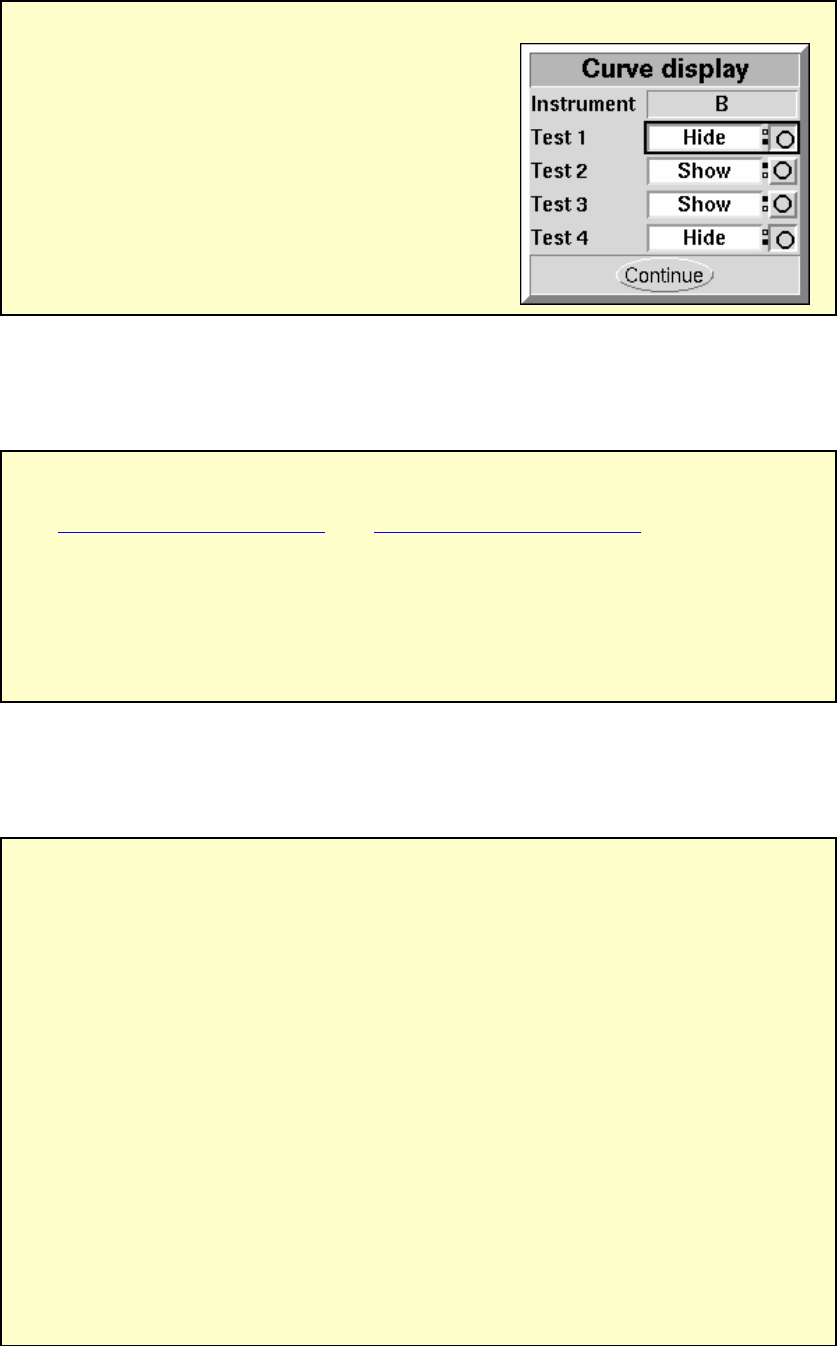
0611 RM500SL User’s Guide Version 2.8 Page 32
7.5 Hide or Show HIT curves
FastFacts 7.5: Hide or Show HIT curves
7.6 1996 or 2003 ANSI standard
FastFacts 7.6: 1996 or 2003 ANSI standard
7.7 ANSI test frequencies
FastFacts 7.7: ANSI test frequencies
On screens capable of showing more than one curve, you may show or hide test
curves. Hiding a curve does not erase it.
To hide or show test curve(s):
1) Highlight, then <PICK> Curve [Hide/Show].
2) Highlight, then <PICK> the desired test
curve to toggle between Hide or Show. The
curve will toggle on or off when selected.
3) Press <Continue> to return to the test
screen.
The Frequencies feature allows hearing instruments to be evaluated at the Special
Purpose Average (SPA) frequencies defined by ANSI S3.22, rather than the
default High Frequency Average (HFA) frequencies. The choice of SPA (or HFA)
frequencies influences the average OSPL90, average full-on gain, reference test
gain, bandwidth and equivalent input noise. The frequencies at which distortion is
measured are one-half the selected SPA frequencies. You can also select the
frequencies at which attack and release times are measured.
To change the averaging frequencies:
1) Press <Setup>, then highlight and <PICK> [Frequencies].
2) Highlight and <PICK> the HFA/SPA frequencies box, to generate a drop-down
list box of alternate test frequencies.
3) Highlight the desired HFA/SPA test frequencies and press <PICK> to select.
To change the frequencies for attack and release time measurements:
In the list of available frequencies, highlight and <PICK> the frequencies to be
used to measure attack and release time.
Press <Continue> to exit.
Automated tests of linear and AGC hearing aids may be conducted according to
either the ANSI S-3.22-1996 or ANSI S3.22-2003 test standards. For differences,
see 8.2: ANSI S3.22-1996 facts and 8.3: ANSI S3.22-2003 facts.
To select the standard to be used:
1) Press <Setup>, then highlight and <PICK> [ANSI]
2) Highlight and <PICK> the version of the ANSI standard you wish to use.
3) Press <Continue> to exit
